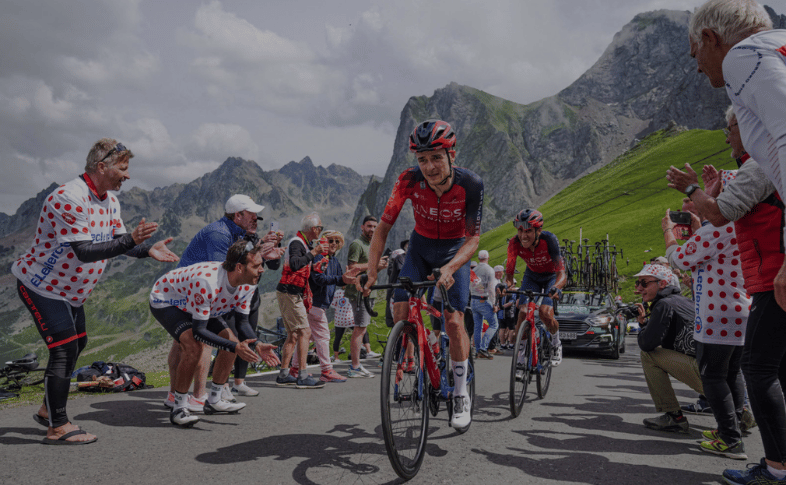British Cycling’s Rise: A Story of Strategic Ingenuity
British Cycling‘s metamorphosis from mediocrity in the early 2000s to a dominating force was not accidental. The pivotal change came with Sir Dave Brailsford‘s appointment as Performance Director. His innovative strategy, “The Aggregation of Marginal Gains,” was a game-changer. It wasn’t about overhauling everything but improving every aspect by 1%.
The team’s approach was holistic, encompassing minute changes in equipment, training routines, and even personal hygiene practices. Brailsford’s belief was that these 1% improvements, when aggregated, would lead to significant overall enhancement. This belief was spectacularly validated when the team won the Tour de France within three years, far sooner than the five-year goal, proving the effectiveness of this strategy.
The Universal Impact of Habitual Improvement
Brailsford’s philosophy extends far beyond cycling. It highlights an essential truth: outcomes in any area of life are lagging indicators of the habits that precede them. Be it in health, finance, productivity, or personal organization, habitual actions shape eventual results.
This is particularly relevant in professional settings. Success is rarely the result of isolated actions; it’s typically the end product of sustained, small efforts. In essence, it’s about mastering consistent habits to achieve desired results.
Consistency: The Foundation of Greatness
“Greatness is Consistency. Consistency is Greatness.”
James Clear, the author of ‘Atomic Habits’, articulates this concept in the mantra, “Greatness is Consistency. Consistency is Greatness.”
This mantra also encapsulates the essence of Brailsford’s philosophy. Success isn’t about making sweeping, radical changes; it’s about the cumulative effect of small, consistent actions. Regular efforts, even in small measures, can lead to significant achievements over time.
Performance on Your Worst Days Matters
Performance assessment often focuses on peak performance, but true potential is better measured by consistency, especially during less optimal times. The real challenge lies not in what one can achieve on their best day but in maintaining a baseline of effort even on the worst days. The emphasis should be on creating systems and environments that support consistent habit formation with minimal reliance on fluctuating factors like willpower.
As James Clear says, “What can I stick to even on my worst day?”
System Over Goals: A Paradigm Shift
“Set a System, not a Goal.”
The traditional focus on goal-setting, while important, often overlooks the crucial role of systematic processes in achieving these goals. Setting a goal is just the starting point; the real work lies in establishing a system of habits that make achieving these goals inevitable.
Consider the analogy of an iceberg: the goal is the visible tip, while the supporting mass beneath the water is the system of habits. In the corporate world, this translates to focusing on the processes that lead to desired outcomes, such as effective recruitment strategies, onboarding and training, innovative product development, and impactful marketing campaigns.
Bill Walsh, the Super Bowl-winning coach, famously said, “The score takes care of itself”. This encapsulates the idea of focusing on the system (daily practices, training, recruitment) rather than obsessing over the goal (winning the game).
Turning Goals into Systems
To translate the philosophy of marginal gains into practical steps, we can follow a simple, systematic approach:
- Identify your overarching goals: Clearly define what you wish to achieve.
- Break these goals into smaller, daily habits: Deconstruct each goal into actionable steps that can be performed daily.
- Repeat these habits to create a consistent system: Consistently practice these habits to build a routine, thereby forming a system that moves you towards your goals.
This method bridges the gap between ambitious objectives and the daily actions necessary to achieve them.
Building and Optimizing Systems with Way We Do
Incorporating technology like Way We Do can significantly enhance the process of creating and optimizing systems. Way We Do is an ideal platform for businesses looking to establish and refine organizational habits that lead to desired outcomes. It allows for the documentation, management, and automation of standard operating procedures, turning repetitive tasks into habitual processes.
By using Way We Do, organizations can:
- Systematically break down goals into actionable habits and processes.
- Create Activated Checklists and workflows to ensure consistency and efficiency.
- Monitor and adjust processes to align with evolving business objectives.
This integration of technology into daily operations transforms abstract goals into tangible, habitual actions, ensuring steady progress towards organizational objectives. 1% optimization improvements to processes make huge impacts over time. Process improvement is the marginal gains strategy in action.
Embracing Imperfection and Resilience
“Never Miss Twice”
The journey to success is non-linear and riddled with setbacks. The key is not perfection, but resilience. The mantra “Never Miss Twice” is crucial. It’s about ensuring that one lapse doesn’t turn into a pattern. As James Clear, author of ‘Atomic Habits’, emphasizes, it’s about getting back on track quickly to prevent a single miss from becoming a habit.
The Symphony of Goals and Systems
British cycling’s story is a testament to the power of marginal gains. It teaches us that it’s not just about setting ambitious goals but about diligently crafting the systems that make these goals attainable.
Enriched by the insights of James Clear, “Only as good as Your Worst Day” – a mindset, focusing on consistent, incremental improvements, is key to achieving long-term success, be it in personal endeavors, professional ambitions, or organizational achievements. By focusing on building effective habits and systems, we set ourselves up for significant, sustainable progress.
By leveraging tools like Way We Do, organizations can effectively translate these principles into their operational frameworks, setting the stage for sustained progress and success.
Photo source: Ineos Granadiers Gallery





